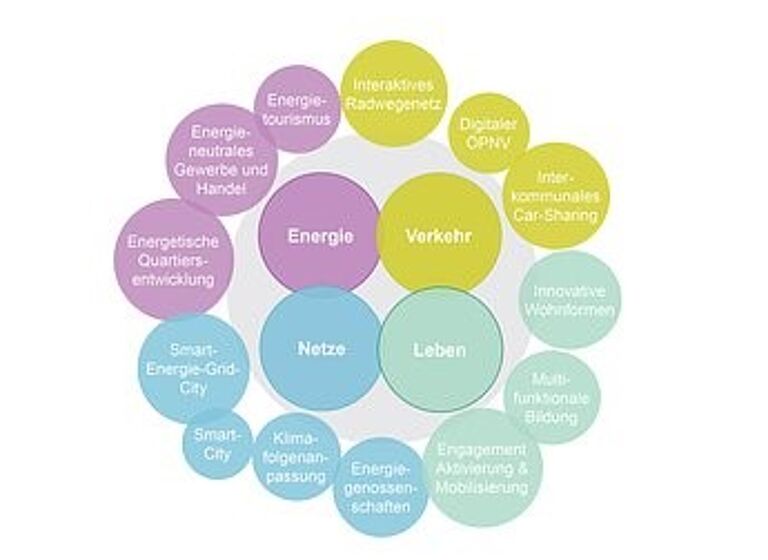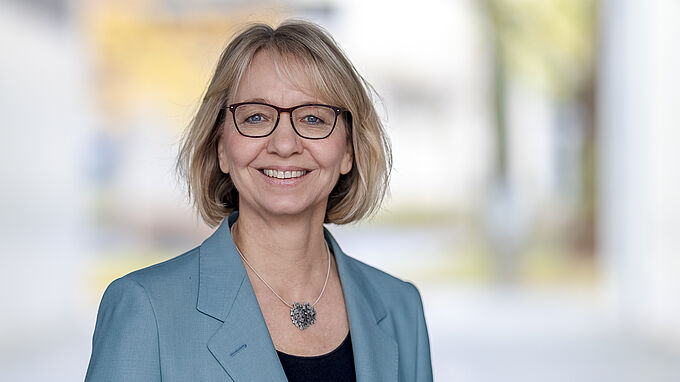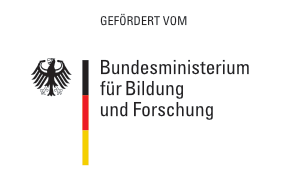
InZuSta
Alliance „Thüringer Becken“ - Intermunicipal Future City 2030+
As part of the Year of Science 2015, the Federal Ministry of Education and Research announced the "City of the Future" nationwide competition. As a participant in this competition, the "Thuringian Basin" alliance has set itself the task of developing a holistic and sustainable "inter-communal guiding vision 2030+". To this end, the ISP is providing scientific support, expert advice on the implementation of future conferences and evaluation of the participation process. The planning support and project coordination for the "Thuringian Basin" alliance is provided by DSK Deutsche Stadt- und Grundstücksentwicklungsgesellschaft mbH & Co. KG.
The "Thuringian Basin" alliance was founded in 2014 and is an association of the towns of Buttstädt, Kindelbrück, Sömmerda and the municipality of Straußfurt. Its goal is to strengthen inter-municipal cooperation and overcome current challenges. Cooperation takes place, among other things, in the areas of obtaining funding, energy-related urban and village development, economic and tourism development, and public relations work. The basis for future inter-municipal development is close cooperation with the residents and other local actors. Within the framework of the "inter-municipal city of the future 2030+", a future concept with an inter-municipal guiding vision, recommendations for action and implementation proposals on the core topics of "energy", "transport", "networks" and "life" is to be drawn up. This will be done in the four municipalities through parallel and joint participation processes.
InZuSta
Grant provider: Third-party funded research project of the Bundesministeriums für Bildung und Forschung (BMBF)
Deutsche Stadt- und Grundstücksentwicklungsgesellschaft mbH & Co. KG (DSK)
Duration: 08.2015 - 03.2016
The BMBF competition is divided into three phases. Within the first phase, the focus is on developing a strategy for the future with the involvement of the various local stakeholders. Methodologically, future conferences will be held simultaneously in all four municipalities. The "entire system of the respective municipalities is brought into one room" (Seliger 2008: Einführung in Großgruppen-Methoden, Heidelberg), so that different actors from politics, administration, business, associations and civil society represent the urban society and discuss local potentials in changing groups and work out development ideas for the cities and municipalities as well as the alliance. Public actors, stakeholders and civil society are thus mobilised and integrated into future inter-municipal developments at an early stage by contributing ideas, suggestions and proposals to planning processes.
The future conference is assigned to the large group methods and is used in urban planning for the development of guiding principles and the creation of integrated urban development concepts. It takes place over several days and passes through various working steps using different working methods: (1) reviewing the past, (2) analysing current external and internal trends, (3) developing visions, (4) reaching consensus, and (5) planning measures and projects.
The first phase of the competition project "Alliance "Thuringian Basin" - Intermunicipal Future City 2030+" is scientifically accompanied and evaluated by the ISP. The focus is on evaluating the dialogue-oriented development processes and the results of future conferences. The aim is to qualify for the second phase of the "City of the Future" competition and the associated concretisation and planning of the visions.
Project team
Former research associate
- Madlen Kratzsch, B.Sc.
- Nora Rebmann, B.Sc.



